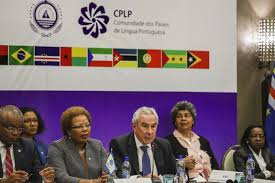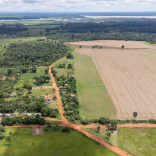Angola gets 60 000 barrels per day oil production bump
CPLP: Executive secretary sees ‘growing interest’ from international bodies

The Community of Portuguese-Language Countries (CPLP) is prompting “widespread” and “growing interest” on the part of international organisations, its executive secretary after three days of meetings in Geneva, Switzerland, to raise its profile.
“What I could see with all these meetings is that there is growing interest in the CPLP [and it is] awakening a widespread interest from organisations,” said Francisco Ribeiro Telles, the career diplomat from Portugal who is currently in charge of the CPLP.
He noted that there are already 19 countries that have sought and secured associated observer status at the CPLP.
Telles was speaking to Lusa after the three days of meetings in Geneva that ended on Wednesday with a meeting with the director-general of the World Health Organization (WHO), Tedros Ghebreyesus.
“My concern in all these meetings was to give the CPLP greater visibility in international forums,” he said, citing one of the promises that he had made before taking up his post.
In addition to the WHO, Telles had meetings with the heads of the International Labour Organization (ILO), Guy Ryder, and of the World Intellectual Property Organization (WIPO), as well as with Brazil’s minister of state for women, the family and human rights, Damares Alves.
He also had a meeting with the United Nation’s deputy commissioner for human rights, Kate Gilmore, and spoke at the 40th session of the UN Human Rights Council.
With Ghebreyesus, Telles discussed the possibility of WHO’s regional office for Europe, based in Copenhagen, developing a partnership with the CPLP to hold a conference in Lisbon of the ministers of health of the CPLP and associated observer countries. Telles also sought support in organising an informal meeting of CPLP ministers of health on the sidelines of the World Health Assembly, which is to take place in Geneva in May.
“We also discuss the possibility of an update of a memorandum of understanding that has existed between the CPLP and the WHO for many years,” Telles said.
With the ILO, the CPLP has been cooperating “positively” for 15 years, he noted, adding that it was “important” to ensure greater involvement on its part in CPLP meetings.
“We also talked about the possibility, since the CPLP celebrates the Youth Year in 2019, of having a meeting in Lisbon of experts from the CPLP, Ibero-American [countries] and the ILO to discuss young employability,” Telles said, adding that Ryder “thought it was an excellent idea, and we are to make it happen.”
At the meeting with the deputy commissioner, among other things, Telles asked for expert support “for institutional strengthening and training in the area of the defence and promotion of human rights” and also “the support of the high commissioner in developing training efforts of CPLP member states in establishing and reinforcing national human rights institutions.”
The CPLP was founded in 1996 and its current members are Angola, Brazil, Cape Verde, Equatorial Guinea, Guinea-Bissau, Mozambique, Portugal and Sao Tome and Principe.












Leave a Reply
Be the First to Comment!
You must be logged in to post a comment.
You must be logged in to post a comment.